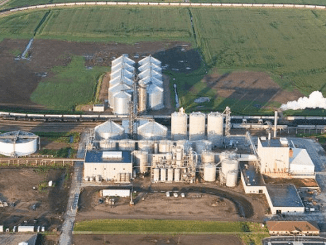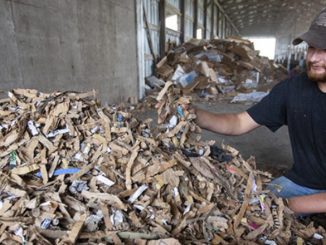
DES MOINES, Iowa, January 9, 2022 (ENS) – The state of Iowa filed a lawsuit Friday against the city of Sioux City, alleging that it misled state officials by manipulating test results and discharging polluted water into the Missouri River.
The lawsuit alleges that for periods between March 15, 2012, through June 8, 2015, the city’s wastewater treatment facility the Sioux City Wastewater Treatment Plant at 3100 S Lewis Blvd, Sioux City would properly disinfect wastewater discharges only on days in which samples for E. coli contamination were taken and submitted to the Iowa Department of Natural Resources, DNR.
The scheme was an attempt by the city to increase its treatment capacity without a significant capital investment, the lawsuit alleges.
“The city potentially endangered human lives and wildlife by violating water-quality rules and perpetrating a fraud to conceal its employees’ actions,” said Iowa Attorney General Tom Miller, who filed the lawsuit in Woodbury County on behalf of the state and the DNR.
The state asks the court to assess a civil penalty of up to $5,000 for each day of violation and issue a permanent injunction preventing the city from further violations of state law and its treatment permit.
Sioux City in northwestern Iowa lies on the Missouri River at the influx of the Big Sioux and Floyd rivers, where Iowa, South Dakota, and Nebraska meet.
According to the lawsuit, the city continues to violate permit limits for ammonia and chlorine.
According to the lawsuit, Sioux City’s treatment plant uses a process in which it adds chlorine to disinfect wastewater discharges. If insufficiently disinfected, wastewaster effluent may expose recreational users of the river to various pathogens, including E. coli.
Chlorine is toxic to fish and other aquatic life and dangerous to recreational users, so the treatment facility must subsequently add sodium bisulfite to reduce the total residual chlorine in the discharged water.
In about 2012, the city’s treatment facility management and other city officials discovered that the facility did not work properly and could not consistently disinfect the millions of gallons of wastewater that it was discharging into the Missouri River each day.
Rather than alert the DNR to this serious problem, the facility employed a fraudulent testing procedure that ensured that it would always pass its effluent tests for fecal coliform, E. coli, and total residual chlorine, the lawsuit alleges.
The treatment plant was required to test the water five days in one calendar month during each three-month period from March to November, resulting in a total of 15 days of testing. During those days, the facility would adjust the chlorine rate higher, but then lower it on non-testing days.
At the same time it was using the fraudulent testing procedure, the city was touting the effectiveness of its wastewater treatment system in an attempt to persuade the DNR to raise the facility’s capacity rating. That increase would allow the city to recruit more business and industry with high-strength wastewater.
“Cheating on required environmental tests gave the city an unfair advantage in this competition to attract business and industry among other municipalities,” the lawsuit alleges.
In April 2015, the DNR received an anonymous complaint about the city’s fraudulent testing procedures. The agency later discovered that the tip came from a pretreatment manager at the facility.
The state put its case on hold against Sioux City in 2016 while awaiting a federal investigation. Former treatment plant superintendent Jay Niday pleaded guilty to charges of conspiracy and falsifying or providing inaccurate information and was sentenced last year in U.S. District Court for the Northern District of Iowa to three months in prison and was fined $6,000.
Former supervisor Patrick Schwarte pleaded guilty to similar charges and was sentenced to two years of probation and fined $5,000.
The city continues to have difficulty with the plant and has discharged excessive amounts of total residual chlorine as recently as August 2021.
Featured image: The downtown Sioux City, Iowa skyline and Missouri River, as seen from across the river at the Riverview/Scenic Park campground and city park in South Sioux City, Nebraska. September 22, 2018 (Photo by Tony Webster courtesy Wikimedia)
© 2022, Environment News Service. All rights reserved. Content may be quoted only with proper attribution and a direct link to the original article. Full reproduction is prohibited.



